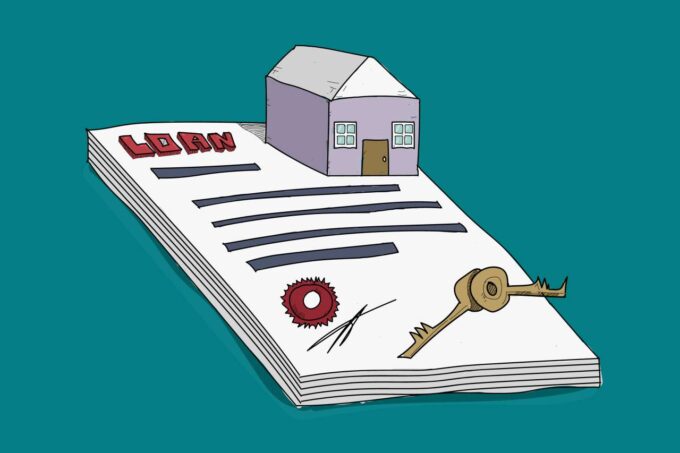Running a business can require a significant amount of capital to start up, expand, or recover from unexpected events. While credit cards can be helpful, businesses can find better rates and terms with a secured line of credit, also known as a term loan. Here are some pros and cons of this kind of financing.
What Are Term Loans?
Term loans are loans that are taken out with a bank, credit union, or other investor and delineate a specific period of time in which the borrower makes regular payments until the total is paid off. A business term loan gets its name because the loan is written for a specific period of time or a “term.” This type of loan includes products such as mortgages for real estate and loans for purchasing vehicles.
How Are Term Loans Different From Other Loans?
Loans can be divided into two categories: secured loans and unsecured loans. Secured loans require the borrower to offer something as collateral, such as the subject property covered by a mortgage or the subject vehicle covered by an auto loan. If the borrower should default, the lender is legally allowed to procure and possess the item placed as collateral. Term loans are often a form of secured loan (but not always).
Unsecured loans do not require collateral, and this category covers credit cards, educational loans, and typically any products that have a changing credit limit rather than a fixed one. These loans may be term loans, but they are typically not.

Because the borrower places something as collateral with a secured loan, the lender can rest assured that they will receive property close to the value of the loan amount in case the borrower defaults. Because of this security, banks will typically offer secured loans at a lower rate than unsecured ones.
The main defining factor about a term loan is that this type of loan has a specific period of time in which the borrower makes regular payments until the balance reaches zero. This is different from other loans which have no regular payment amount or payoff date.
How Does A Business Owner Secure A Term Loan?
First, a business owner must carefully research what loans are available and what benefits they provide. Securing a loan with a credit union may offer more benefits than one offered by a bank, such as lower interest rates and easier communication. Once a business owner has identified a lender and a product that works for his or her needs, it is time to begin the application process.
To secure a term loan, a business owner will have to provide his or her personal credit report, a business plan, profit and loss statements, tax returns, balance sheets, and other documents along with the loan application. These documents may take a significant amount of time and effort to assemble, so it’s important to begin the process long before the loan is needed.
Once all the documents are submitted to the bank, a business owner will wait to hear if he or she has been approved for the loan. Regardless of the bank’s decision, the business owner is free to decide whether he or she wants to accept the loan, or whether he or she wishes to negotiate the terms with the bank.
Choosing the Right Lender

When you’re searching for a term loan to fund your business, it’s important to do your research and find the right lender. Depending on your financial needs and the type of loan you are looking for, there may be different lenders that can offer you the best terms. Here are some tips to help you select the best lender for your business loan:
Determine Your Funding Needs: Before approaching any lenders, take some time to figure out exactly how much funding you need and for what purpose. This will help you narrow down potential lenders who may be able to work with you better than others.
Check Credit Reports: Make sure to review your own credit report before applying for a loan through any lender. This will allow you to correct any errors or discrepancies that could prevent you from getting approved or receiving good terms on a loan.
Compare Loan Terms: Different lenders will offer different terms and conditions when it comes to loans, so make sure to compare them side-by-side in order to get a clearer picture of which one is most suitable for your business needs. Consider factors such as interest rates, repayment periods, late fees, and more when choosing a lender.
Review Fees Carefully: Many lenders charge fees in addition to interest rates on their loans, so be sure to read through all of the documents associated with potential loans carefully in order to understand exactly how much money it will cost in total over the life of the loan.
Get Referrals From Other Businesses: Sometimes it’s helpful to talk with other businesses who have taken out term loans before in order to get an idea of which lenders they found helpful or had difficulty working with in the past. This can give you an inside look at what different companies have experienced when taking out loans through certain institutions and help inform your decision-making process when seeking financing options.
What Are the Pros and Cons of Different Term Lengths?

A short-term loan is typically any loan with a term of fewer than 24 months. This type of loan covers extremely short-term loans, such as payday loans which are due in 1 to 2 weeks. These types of loans typically have very high-interest rates, which means a business owner will pay a premium for this type of loan.
An intermediate-term loan is a loan that has a term of 3 to 5 years. This type of loan typically covers automobiles purchased for businesses. The interest rate on this type of loan is typically not as high as that of a short-term loan, and the payments are typically lower as well.
A long-term loan includes any loan with a term of 10 years or longer. This type of loan covers mortgages for real estate. This term loan offers a lower interest rate than any other term length.
Term loans can be an excellent option for a business owner seeking to purchase vehicles, real estate, or other big items. With careful research and planning, these products can accelerate a business toward its goals.









